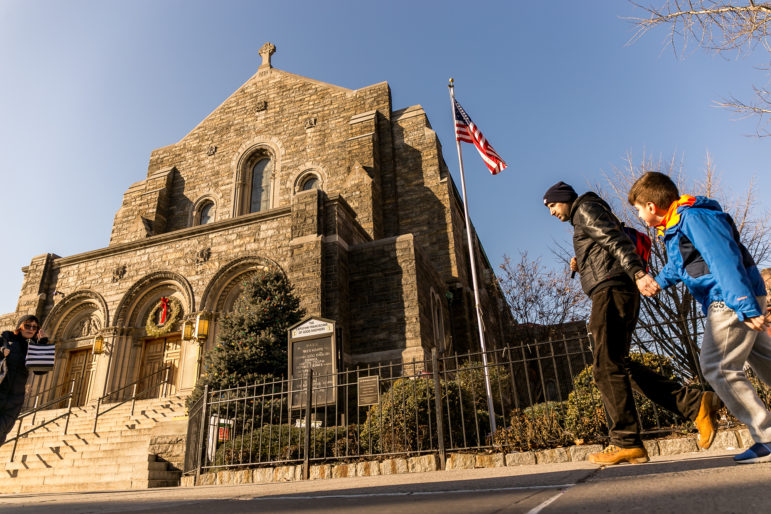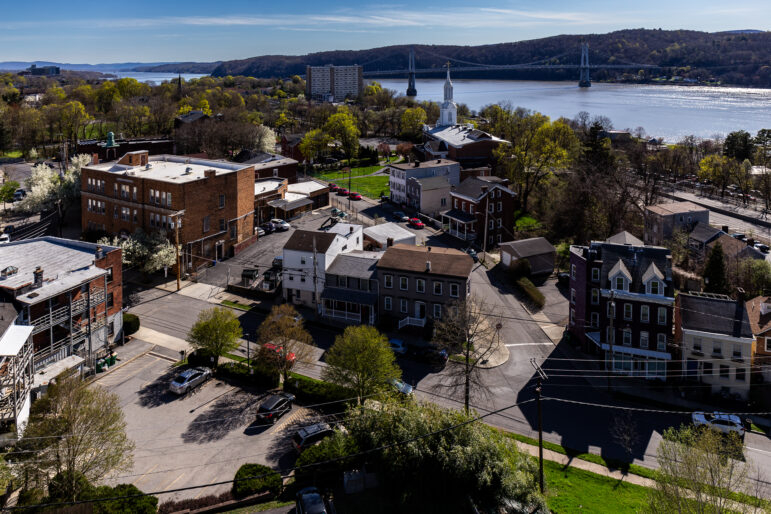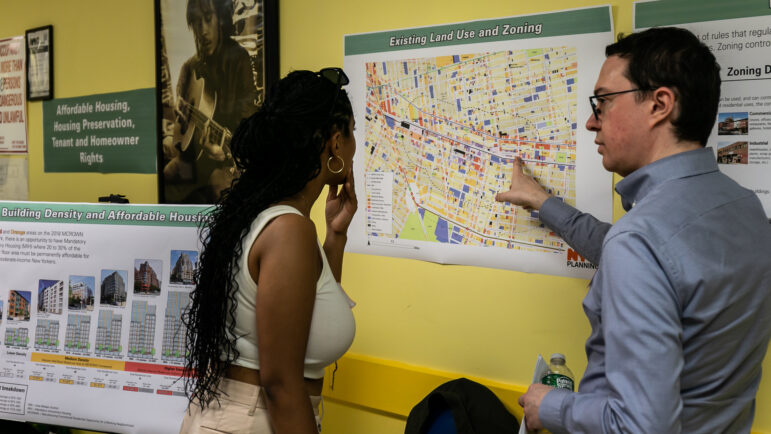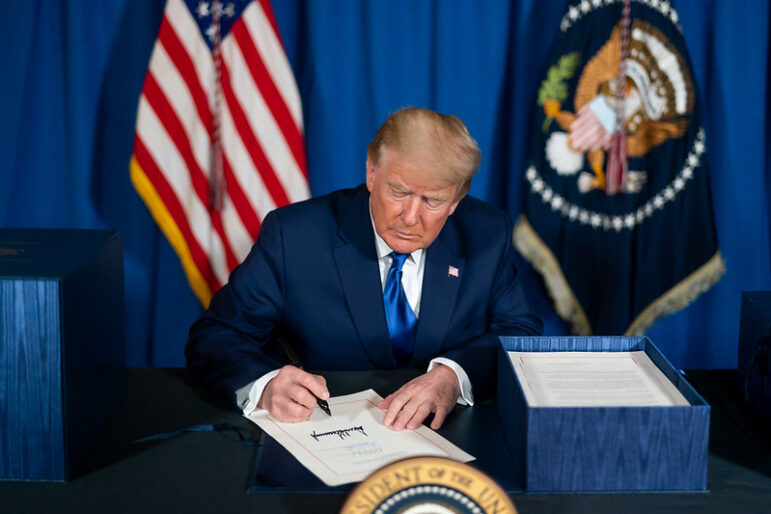“We say it’s a civil rights issue, because by sowing doubt and confusion, misinformation campaigns ultimately undermine the ability of the Latina community to advocate for themselves and participate in the decision-making process.”
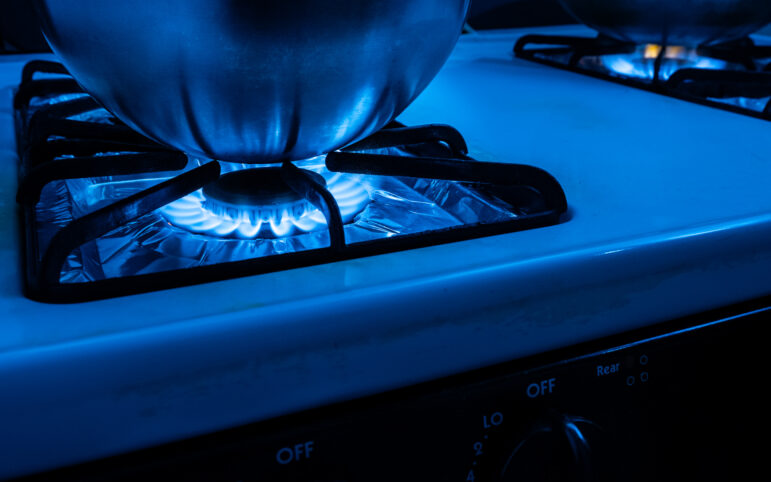
Adi Talwar
“The gas industry is the OG of disinformation,” says James Hadgis, executive director of the Gas Leaks Project.For nearly a decade, President Donald Trump and conservative groups have perpetuated the lie that climate change is a hoax. But grassroots efforts to debunk these false narratives are alive and thriving.
The Gas Leaks Project, in partnership with GreenLatinos and the Climate Action Against Disinformation Coalition, are using videos, graphics, and a home page filled with facts to inform Latino audiences about climate disinformation.
Their efforts, launched not long after social media platforms like Meta and X announced they were ditching their fact checkers, are focused on Latino communities because the demographic is increasingly gaining more voting power and influence in the U.S—and consuming most of their news on social media, the organizers behind the campaign say.
Roughly 87 percent of Latinos in the U.S. say they get news from digital devices at least sometimes, and 65 percent say they prefer this form of news over TV, radio or print, a Pew Center report published last year says.
The campaign is being launched in U.S cities like New York where Latino populations are most prevalent. The Big Apple alone is home to over 2.4 million people who identify as Hispanic or Latino, making up about 29 percent of the entire city’s population.
Videos are being circulated in Spanish and English in New York and will run for four weeks across major social media platforms like TikTok. One is a play on a public service announcement that ran on TV between the late 1960s up until the 90s asking parents if they know what their children are up to past 10 p.m.
“Do you know what your parents are scrolling?” the video asks.
City Limits caught up with Juan Pablo Alvarado, GreenLatinos’ climate misinformation coordinator and James Hadgis, executive director of the Gas Leaks Project, to chat about the campaign and the fight to bring down false narratives in the climate sphere.
This conversation has been edited and condensed for clarity.
Why tackle misinformation in Latino communities?
Alvarado: Unfortunately, Latin communities are often targeted by climate misinformation campaigns for a range of reasons.
The Latina community has been growing in numbers and [it] has a powerful voice. It is very influential. And that’s been proven in this past election. At the very least, they have voting power. So by targeting the Latina community and sowing that doubt and fear, it leads people to continue to invest in big oil and other [fuels] that are contributing to climate change. It’s more money for them at the end of the day.
These narratives often exploit our fears about job loss, economic instability, and general distrust of institutions. So these messages are particularly resonating within our communities.
And social media platforms are often lacking in content moderation in Spanish. Right now, we’re seeing that Meta just changed their policies to remove third party fact checkers. [Content moderation] is already limited in English. In Spanish, way less is being invested into our communities.
So at the end of the day, we say it’s a civil rights issue, because by sowing doubt and confusion, misinformation campaigns ultimately undermine the ability of the Latina community to advocate for themselves and participate in the decision-making process.
What are some myths that have been perpetuated regarding climate, and who’s spreading them?
Alvarado: Some top lines are…that climate change is a hoax driven by evil, influential people in the world that want to control us and make money.
We also saw messages coming out about the hurricanes that hit Florida and the general Gulf in the fall of 2024. I won’t go too much into it, as I don’t want to spread it. But basically these conspiracy theories say that the hurricanes were not a climate disaster, that they were man made.
Then there is, of course, climate denialism in general, saying that climate change isn’t happening. Disinformers put out different videos and infographics to try and promote that idea. And usually these disinformers also just attack scientists, politicians and anyone that’s supporting and saying that there is a climate change or a climate crisis.
What strategies are you using to fight misinformation?
Alvarado: At the heart of disinformation work is education, and so we need to get ahead of the curve and promote general education to correct some climate misconceptions. Be it in New York or in general in the U.S. That’s one thing that, at least [that] GreenLatinos is trying to work on. We’re promoting cultural pride with education, art, and storytelling.
And we rely more on community dialog to combat this misinformation. The only way to really combat it is for us to inoculate our own community and tell them these are misleading narratives. Why are we being misled? What is the actual truth?
So how does the Gas Leaks campaign play into all of this?
Hadgis: Gas Leaks is a project that exposes that there’s nothing natural about natural gas. It’s actually methane, which is really bad for you. The gas industry is the OG of disinformation, they knew that they were driving climate change but they lied about it for years, and [concealed] that there are clean, renewable alternatives. That’s why we are here to produce educational content to fill that gap.
We are trying to meet people where they are at and present similar content to what they are already consuming that provides an alternative [message]. So we will use the aesthetic of a reality show that pops up in someone’s social media feed. But when they click on it they realize that actually these aren’t characters from a horrible TV show. They’re actually [hazardous pollutants] with names like Benny Benzene and Carbon Monoxide. And so our approach is to reveal the truth by showing that absurdity.
What is the importance of having these small efforts to try and chip away at this mountain of misinformation people are encountering?
Hadgis: I think the narrative shifting has to happen at the local level. We have to start to create awareness, organize and come together. If we don’t put an alternative out there, I’m not sure how we can fight this disinformation. We have to put the truth out there. It might feel like it’s always a little bit of a David versus Goliath situation, like it usually does with these big industries. But we can make change. We can come together and we can kind of put a spotlight on as much as we can and keep going. But it does feel a little bit daunting right now in 2025.
To reach the reporter behind this story, contact Mariana@citylimits.org. To reach the editor, contact Jeanmarie@citylimits.org
Want to republish this story? Find City Limits’ reprint policy here.


